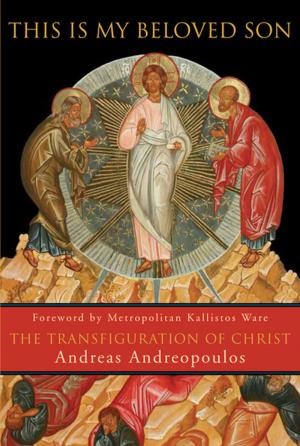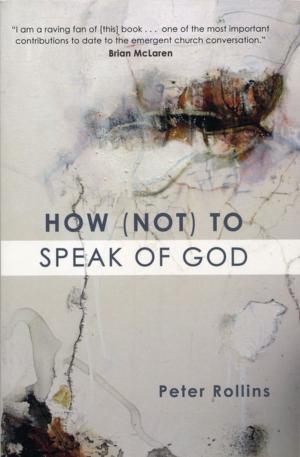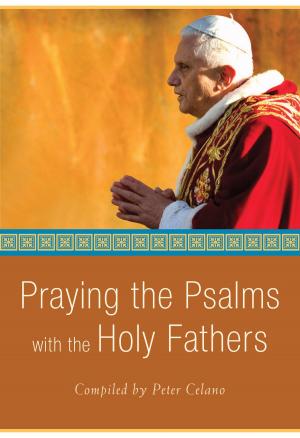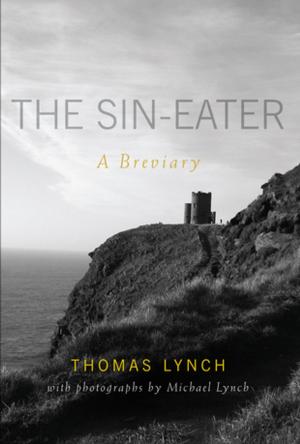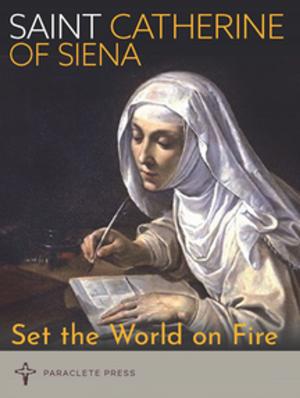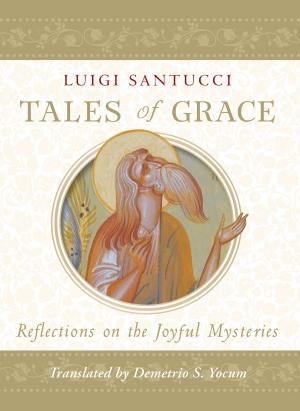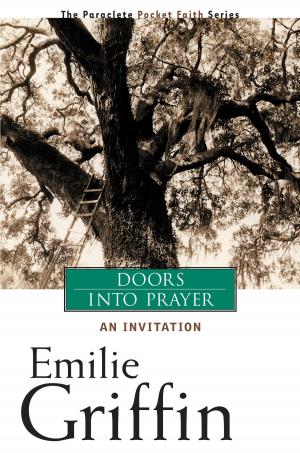| Author: | Donald Sheehan | ISBN: | 9781612617015 |
| Publisher: | Paraclete Press | Publication: | March 1, 2014 |
| Imprint: | Paraclete Press | Language: | English |
| Author: | Donald Sheehan |
| ISBN: | 9781612617015 |
| Publisher: | Paraclete Press |
| Publication: | March 1, 2014 |
| Imprint: | Paraclete Press |
| Language: | English |
Professor and scholar, teacher of poets and poetry and convert to Eastern Orthodoxy, Donald Sheehan wrote these wide-ranging essays with a common commitment to understanding the ways in which the ruining oppositions of our experience can be held within the disciplines of lyric art—held “until God Himself can be seen in the ruins . . . and overwhelmingly and gratefully loved.” That is what Sheehan means by “the grace of incorruption.” Part One weaves together themes from Sheehan’s life and pilgrimages; the spiritual art of Orthodox Saints Gregory of Nyssa, Isaac and Ephraim of Syria, and others; the literary art of Dostoevsky, Frost, Salinger, and contemporary poets including Jane Kenyon; and the philosophy of René Girard—examining the nature of penitence, prayer, personhood, freedom, depression, and the right relationship to the earth. Part Two delves into the poetics of The Psalms, especially LXX 118: a “poetics of resurrection.” “I am dead certain that my response to this volume will chime with those of others whose work is held up to the light in The Grace of Incorruption. In one beautiful sentence after another, we must share the uncanny sense of never having understood our own hearts—not until we saw them reflected in the great heart (and mind) of this nonpareil commentator. Don Sheehan did not merely understand poetry; it was part and parcel of his own great soul." —Sydney Lea, Vermont Poet Laureate “This was a very difficult book for me to read, as—now and again—my own tears blinded me to the page, and my own sobbing shook the papers in my hands. That is to say that Donald Sheehan’s journey—through both brokenness and beauty—to a deep and healing calm is at once personal and universal. With a poet’s visionary prose, a scholar’s acuity, and a pilgrim’s devotion, Donald Sheehan offers his reader access to the profound, compelling stillness at the heart of all things. He proves an exceedingly good guide along the way.”—Scott Cairns, author of Slow Pilgrim: Collected Poems “In this beautiful book, Dostoyevsky, Orthodox liturgy, and Holy Fathers ancient and modern converse with Shakespeare, Frost, Salinger, Jane Kenyon and René Girard, sharing insight into such realities as memory, violence, depression, stillness, self-emptying love, personhood, and ‘the anthropology of the Cross.’ This conversation, a ‘spiritual ecumenism’ effected in art, gathers finally round the heart and source of all tradition of poetry and prayer in Christian East and West alike: the Psalms of David. Orthodox Christian contributions to Anglophone poetry and poetics are few. Don Sheehan was not only a fine interpreter of poetry, but a poet himself, working in the medium of prose. The philosopher Malebranche famously wrote that ‘attentiveness is the natural prayer of the soul,’ and the Orthodox liturgy bids us continually to ‘be attentive.’ The essays in this volume capture that spirit of loving attentiveness -- never lacking in form -- for which Don ardently strove, and which characterized his approach to art, to other people, and to God.”—Fr. Matthew Baker, Fordham University
Professor and scholar, teacher of poets and poetry and convert to Eastern Orthodoxy, Donald Sheehan wrote these wide-ranging essays with a common commitment to understanding the ways in which the ruining oppositions of our experience can be held within the disciplines of lyric art—held “until God Himself can be seen in the ruins . . . and overwhelmingly and gratefully loved.” That is what Sheehan means by “the grace of incorruption.” Part One weaves together themes from Sheehan’s life and pilgrimages; the spiritual art of Orthodox Saints Gregory of Nyssa, Isaac and Ephraim of Syria, and others; the literary art of Dostoevsky, Frost, Salinger, and contemporary poets including Jane Kenyon; and the philosophy of René Girard—examining the nature of penitence, prayer, personhood, freedom, depression, and the right relationship to the earth. Part Two delves into the poetics of The Psalms, especially LXX 118: a “poetics of resurrection.” “I am dead certain that my response to this volume will chime with those of others whose work is held up to the light in The Grace of Incorruption. In one beautiful sentence after another, we must share the uncanny sense of never having understood our own hearts—not until we saw them reflected in the great heart (and mind) of this nonpareil commentator. Don Sheehan did not merely understand poetry; it was part and parcel of his own great soul." —Sydney Lea, Vermont Poet Laureate “This was a very difficult book for me to read, as—now and again—my own tears blinded me to the page, and my own sobbing shook the papers in my hands. That is to say that Donald Sheehan’s journey—through both brokenness and beauty—to a deep and healing calm is at once personal and universal. With a poet’s visionary prose, a scholar’s acuity, and a pilgrim’s devotion, Donald Sheehan offers his reader access to the profound, compelling stillness at the heart of all things. He proves an exceedingly good guide along the way.”—Scott Cairns, author of Slow Pilgrim: Collected Poems “In this beautiful book, Dostoyevsky, Orthodox liturgy, and Holy Fathers ancient and modern converse with Shakespeare, Frost, Salinger, Jane Kenyon and René Girard, sharing insight into such realities as memory, violence, depression, stillness, self-emptying love, personhood, and ‘the anthropology of the Cross.’ This conversation, a ‘spiritual ecumenism’ effected in art, gathers finally round the heart and source of all tradition of poetry and prayer in Christian East and West alike: the Psalms of David. Orthodox Christian contributions to Anglophone poetry and poetics are few. Don Sheehan was not only a fine interpreter of poetry, but a poet himself, working in the medium of prose. The philosopher Malebranche famously wrote that ‘attentiveness is the natural prayer of the soul,’ and the Orthodox liturgy bids us continually to ‘be attentive.’ The essays in this volume capture that spirit of loving attentiveness -- never lacking in form -- for which Don ardently strove, and which characterized his approach to art, to other people, and to God.”—Fr. Matthew Baker, Fordham University


